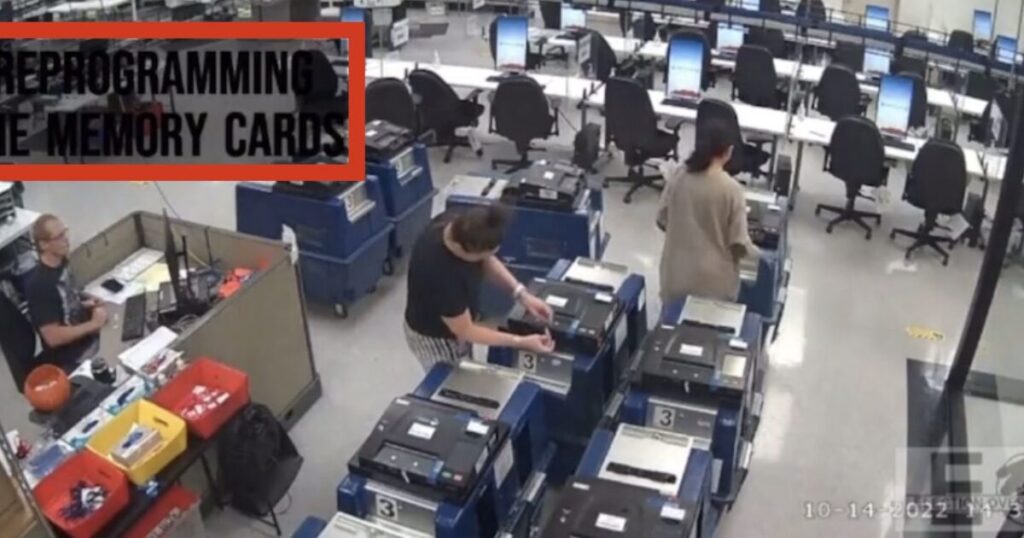In Maricopa County, Arizona, election workers have been tasked with reprogramming machine memory cards in preparation for the 2022 election, amidst ongoing concerns regarding election integrity and compliance with election laws. The Republican National Committee (RNC) has received criticism for its apparent inaction regarding these issues, especially given the controversies that surrounded the elections of both 2020 and 2022, which many believe were marred by significant irregularities. In light of previous failures, including about 60% of voting machines in Arizona’s largest county being reported as malfunctioning in 2022—resulting in a loss of votes for many Republicans—the expectation was that the RNC would put substantial efforts into ensuring that elections remain fair in the 2024 cycle.
Compounding the issue, recent revelations indicate that Arizona failed to verify the citizenship status of over 218,000 registered voters. Initially thought to involve 98,000 voters, this estimate was later adjusted to reflect a distinctly larger number, resulting primarily from a glitch that impacted voters who obtained their driver’s license prior to 1996. Disturbingly, the Secretary of State, who is a Democrat, maintains that most of these voters are Republicans; however, without the provision of a comprehensive list of these voters to political parties and local county officials, skepticism reigns. The secrecy surrounding the identities of these voters has fueled higher tensions, leading to concerns about potential disenfranchisement and vote dilution.
In light of these alarming developments, RNC Chairman Michael Whatley offered reassurances, emphasizing that the organization would be deploying observers and legal representatives to oversee voting processes and ensure adherence to established rules. However, critics argue that his comments regarding the documentation needed to prove citizenship—specifically that a driver’s license is insufficient—reflect a lack of concrete action being taken by the RNC to address the substantial issues at hand. Instead of proactive measures, it appears that legal action from external organizations has been necessary to compel transparency from the Secretary of State’s office regarding the citizenship verification controversy.
Additionally, voters overseas—both civilian and military—are reportedly allowed to register online without any identification or proof of citizenship, leading to fears that election integrity is further compromised. Political reports indicate that the Democratic coalition aims to gather an astonishing 9 million overseas votes despite there being only 2.8 million eligible voters in that category, raising questions about the motivations and methods behind such actions. In a statement posted on Truth Social, former President Donald Trump expressed outrage about the lack of action from RNC lawyers to prevent what he characterized as ongoing electoral fraud.
Reports of collusion between political campaigns and educational institutions have also emerged; notably, the Kamala Harris campaign allegedly acquired contact information for 150,000 students, alumni, and parents from various Arizona universities, sending out messages urging them to vote for her. This raises significant concerns regarding the ethical implications of political outreach within academic settings and questions regarding data privacy. If her campaign can access such a vast amount of personal information, it prompts inquiries about what other data may be readily available to partisan figures.
The ongoing situation has prompted prominent Arizona political figures, such as advisor Caroline Wren and State Senator Wendy Rogers, to publicly critique the RNC’s apparent lack of substantive action or transparency regarding election integrity. Wren has pointedly questioned the effectiveness of the GOP’s “Election Integrity” program, suggesting that it may be merely an illusion without any real backbone or actionable strategy. In the face of these challenges, calls for increased resources and involvement in Arizona election processes have intensified, indicating a growing urgency among local leaders to ensure that electoral processes are secure, transparent, and fair as the nation approaches the crucial 2024 elections.

